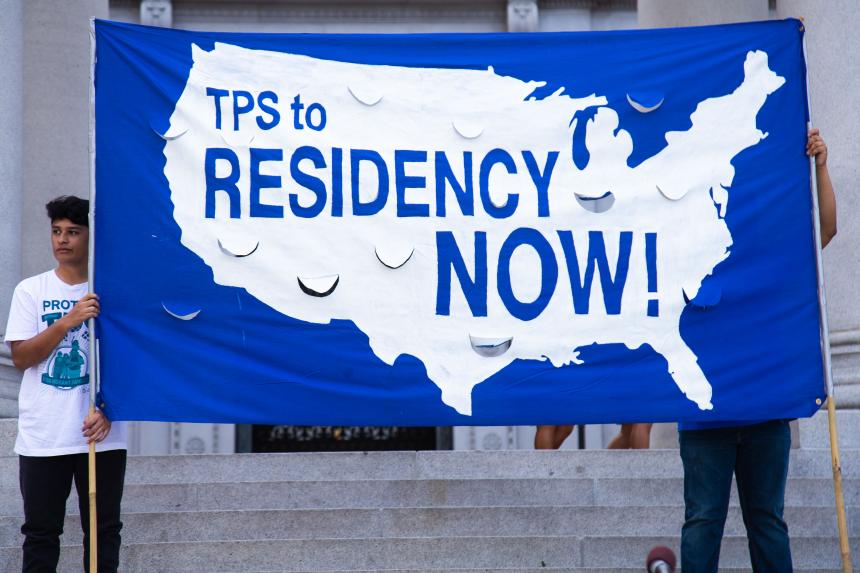American Promise Act of 2017 (H.R. 4253) – House of Representatives
SECURE Act (S.2144) – Senate
Action: Call the U.S. Capitol Switchboard at 202-224-3121, ask to be connected to the office of your U.S. Representative, and ask them to co-sponsor H.R. 4253, or thank them if they have already signed on. Representatives Kelly, Gutierrez, Quigley, Davis and Schakowsky of Illinois have already signed on. Repeat the calls to the offices of your Senators. In Illinois, Senator Duckworth has signed on, but Senator Durbin has not.
Background: Until the recent past, the Department of Homeland Security (DHS) has granted Temporary Protected Status (TPS) for renewable periods of 6 to 18 months to immigrant applicants from countries in which civil unrest, violence, epidemic or natural disasters made it unsafe for them to return to their countries. In return, immigrants could get registration documents and authorization to work. Up through January 1, 2017, there were people from 13 countries eligible for TPS.
Under the Trump Administration, DHS is conducting a country by country review to assess whether or not to extend TPS. So far, DHS has ruled that TPS holders from El Salvador, Haiti, Honduras, Nicaragua, and Sudan will have to leave the U.S., despite continuing violence or lack of recovery from natural disasters in their countries of origin. TPS will continue for Syrians who came to the U.S. before August 2016, but those who came after that date cannot apply for TPS, despite the continuation of the war.
Bill summary: H.R. 4253 would change the status of eligible immigrants from 13 countries with Temporary Protected Status (TPS) or Deferred Enforced Departure (DED) to a status of LPR, lawfully admitted for permanent residence. Immigrants would be eligible to apply if they were granted or were eligible for TPS status, or granted DED, on or before October 1, 2017. Immigrants must apply for this status change within 3 years of the bill’s date of enactment. After 5 years of LPR status, immigrants could apply to become U.S. citizens.
Status: Currently, it has 116 co-sponsors in the House of Representatives, is in the House Judiciary Committee, and has been referred to the Subcommittee on Immigration and Border Security. In the Senate, it has 22 co-sponsors and has been referred to the Senate Judiciary Committee. Below are some talking points you can use:
- TPS holders have been in the U.S. for a long time and are well integrated into U.S. communities: Most TPS recipients have been in the U.S. for at least 15 years and many over a couple of decades. They have married U.S. citizens and/or have U.S. citizen children who were born here. It makes sense to naturalize TPS holders rather than deport them and separate them from their families and communities.
- TPS holders contribute a great deal to the U.S. economy. In addition, 88.5% of TPS holders are in the labor force, higher than the national average. They have jobs that are essential to the economic health of the U.S.Salvadoran, Honduran, and Haitian TPS recipients alone are projected to contribute an estimated $164 billion to America’s GDP over the next decade, according to the American Immigration Council. The AFSC cites the $6.9 billion they contribute to Social security and Medicare. They pay income taxes. Their work is integral to large industries such as construction, home health care, and hospitality.

